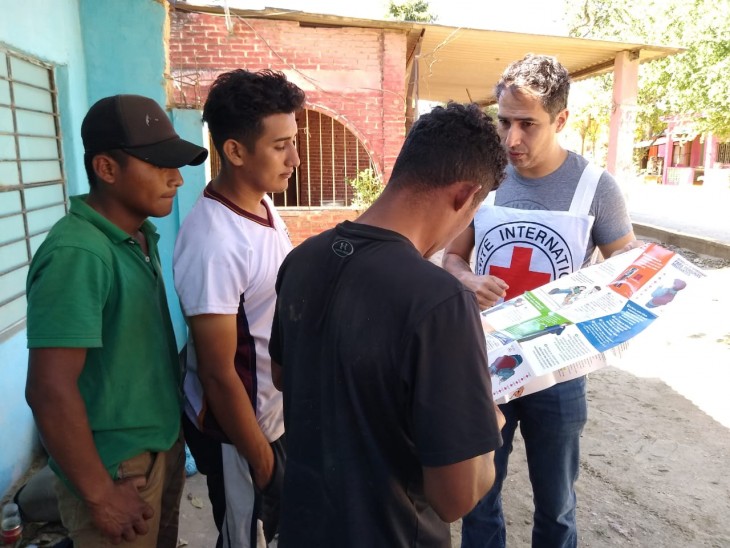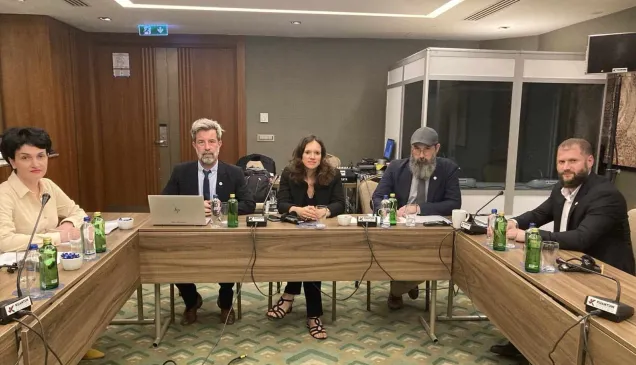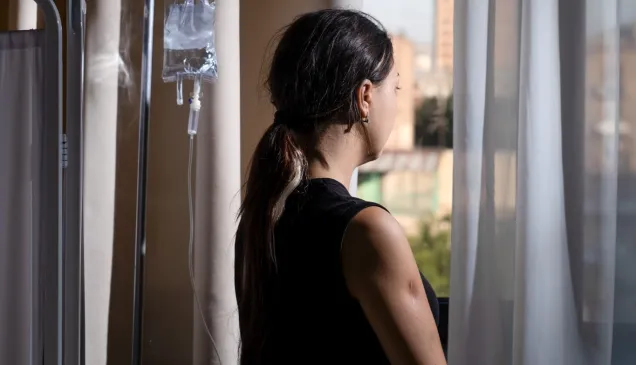Mexico: humanitarian challenges of a vast and diverse country
By Jordi Raich, head of the ICRC regional delegation for Mexico and Central America

Mexico is one of Latin America's largest and most populous and diverse countries. Given the social and cultural differences between areas, the approaches needed to address the humanitarian problems facing the country vary depending on the state and region and must also take into account national integration.
The regional delegation of the International Committee of the Red Cross (ICRC) for Mexico and Central America has its headquarters in Mexico City and permanent offices in San Salvador, Tegucigalpa, San Pedro Sula, Guatemala City and Managua. Within Mexico, we divide our activities into four areas – the north-west, the centre/north-east, the Pacific area and the south – in order to ensure proximity to the people we serve.
This report provides an overview of our work in Mexico, which we carry out with the Mexican Red Cross, the authorities and civil society organizations and which benefited 90,450 people in 2019.
The purpose of the report is not only to describe the activities implemented in 2019, but also to provide an insight into the humanitarian challenges currently affecting people who, with dignity, optimism and enthusiasm, seek to improve their circumstances. We aim to highlight the needs of people who, in situations of adversity, try to find a safer, more dignified place to live, ensure a decent life for their families or find their missing loved ones.
The overall aim of our work is to promote people's safety and security and protect their dignity and rights. We respond to the humanitarian consequences of violence, disappearances, migration and internal displacement. We also visit people deprived of their liberty and promote respect for fundamental human rights, including the rules governing the use of force in law enforcement operations. We engage in dialogue with the authorities and other strategic actors on the importance of implementing the rules of international law in each country in order to address the problems this poses and provide them with specialized advice on how to carry out the processes required.

In Medias Aguas, Veracruz, the railroads of southern Mexico meet. At this key point of concentration of migrants, we are present to offer useful telephone calls and recommendations so that they avoid dangers in the remainder of the migratory route. ICRC/A. Falcón
Our teams in the field are constantly searching for innovative ways to better respond to chronic problems and emergencies, taking into account people's specific needs and respecting regional differences in the country.
This challenge has come to the fore in the crisis unleashed by the spread of COVID-19. In the face of this unrelenting and unprecedented emergency, we have adapted the way we work in an attempt to prevent transmission, as an initial measure, among our own staff and beneficiaries. We also provided support to the authorities and National Societies to improve the response in terms of prevention and assistance, focusing on helping the most vulnerable groups that normally benefit from our activities, specifically migrants, people deprived of their liberty and communities affected by violence. We identified their vulnerabilities and tried to assist them in specific situations when the authorities were overwhelmed.
Respecting those affected and ensuring their dignity and safety is paramount in all ICRC and Mexican Red Cross activities, with a focus on achieving the greatest possible proximity, understanding and dialogue. We believe that, through constant long-term efforts coordinated with the authorities, other organizations and the beneficiaries themselves, we can contribute, with our joint humanitarian action, to finding lasting solutions and breaking the circle of violence and suffering that holds Mexico in its grip.



